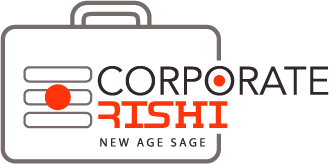Course Summary
About CFA® Program
The CFA® Program, offered by the esteemed CFA Institute in the United States, boasts over 170,000 Charter Holders across 165+ countries, making it a globally recognized standard in finance education. This comprehensive program trains candidates in all aspects of finance, including analysis, estimation, and forecasting of company performance, as well as financial and portfolio management.
The CFA® Exam
The CFA Exam is a rigorous assessment that evaluates candidates' knowledge and proficiency across a wide range of topics essential for success in the field of finance. Here's an overview of the CFA Exam structure and content:
Ten Key Areas: The CFA course covers ten key areas, including ethical and professional standards, quantitative methods, economics, financial reporting, and analysis as per international standards, taxation analysis, debt analysis, global operations, corporate finance, equity investments, fixed income, alternative investments (such as real estate, private equity, and commodities), portfolio management, and wealth planning.
Three Levels: The CFA® Program is divided into three levels:
· Level I: Introduces fundamental topics such as equity, derivatives, etc., which serve as building blocks for portfolio creation. The Level I CFA® Exam is offered in February, May, August, and November, consisting of 180 multiple-choice questions (90 questions in each session) spread across two sessions, each lasting 2 hours, and 15 minutes.
· Level II: Emphasizes the application of various tools like quantitative analysis and portfolio analysis for asset valuation. The Level II CFA® Exam is offered in May and August, comprising 88 multiple-choice questions (44 questions in each session) over two sessions, each lasting 2 hours, and 15 minutes.
· Level III: Focuses on advanced topics such as Portfolio Management and strategies for creating tailored portfolios for individuals and institutions. The Level III CFA® Exam is offered in May and November and includes 9 – 12 essay-type questions and 44 multiple-choice questions spread across two sessions, each lasting 2 hours, and 15 minutes.
The CFA Exam serves as a comprehensive assessment of candidates' understanding and application of financial concepts, preparing them for the challenges and responsibilities they will face in their careers as finance professionals.
Intec and advantage from the course :
Key Highlights of CFA®Program
Global Recognition: With its widespread presence and esteemed reputation, the CFA® Charter is considered the highest designation in the finance industry.
Extensive Knowledge: The program provides candidates with a deep understanding of finance, equipping them with the skills needed to succeed in a variety of roles.
Career Advancement: Earning the CFA® Charter opens doors to exciting career opportunities and signifies a commitment to excellence in finance.
Real-World Relevance: The curriculum is continuously updated to reflect the latest industry trends, ensuring that candidates are well-prepared to tackle real-world challenges.
Transformative Experience: Embarking on the CFA journey is not just a career choice—it's a journey of personal and professional growth, offering a pathway to a fulfilling and rewarding career in finance.
For finance aspirants seeking a program that combines global recognition, comprehensive knowledge, and career advancement opportunities, the CFA® Program stands as the premier choice.




